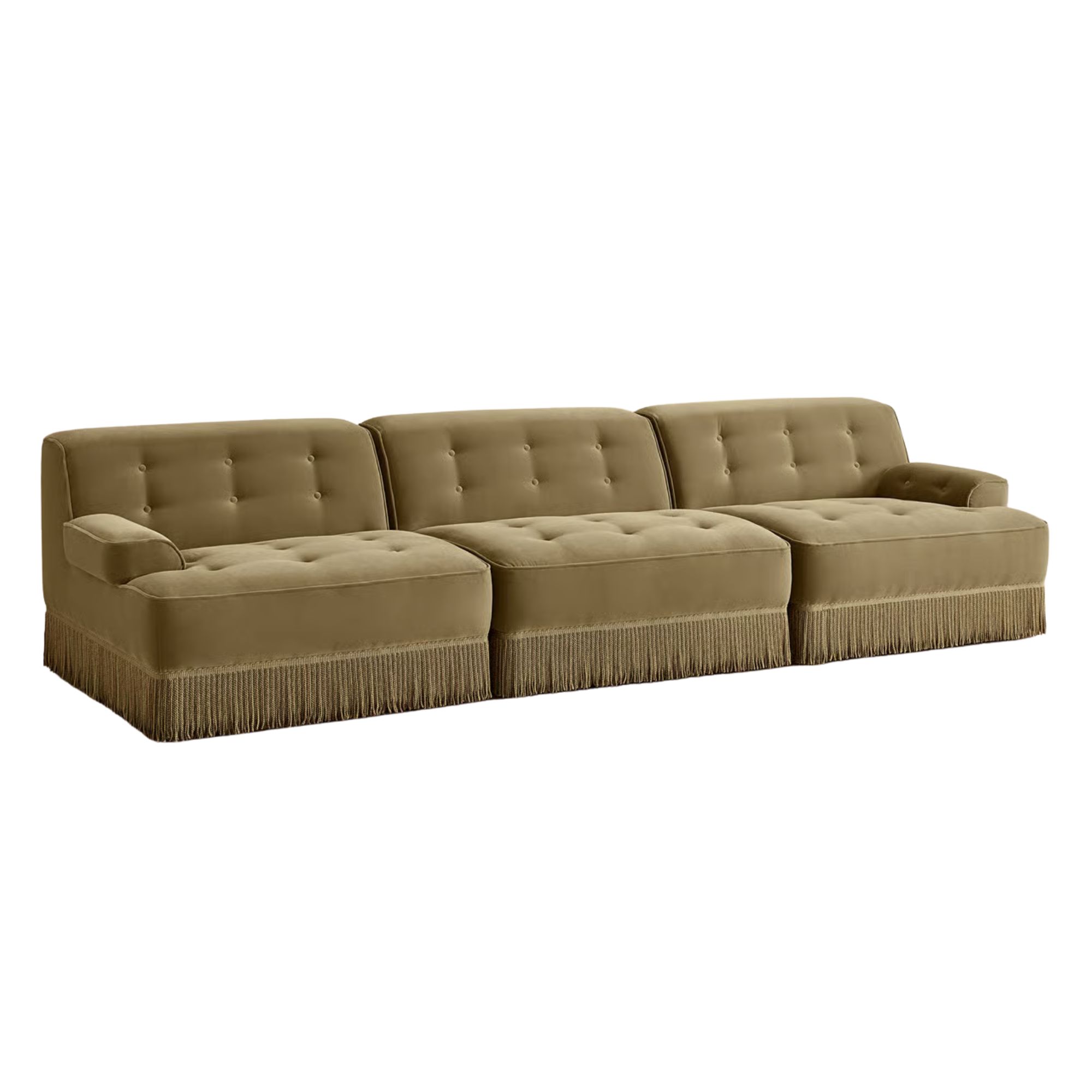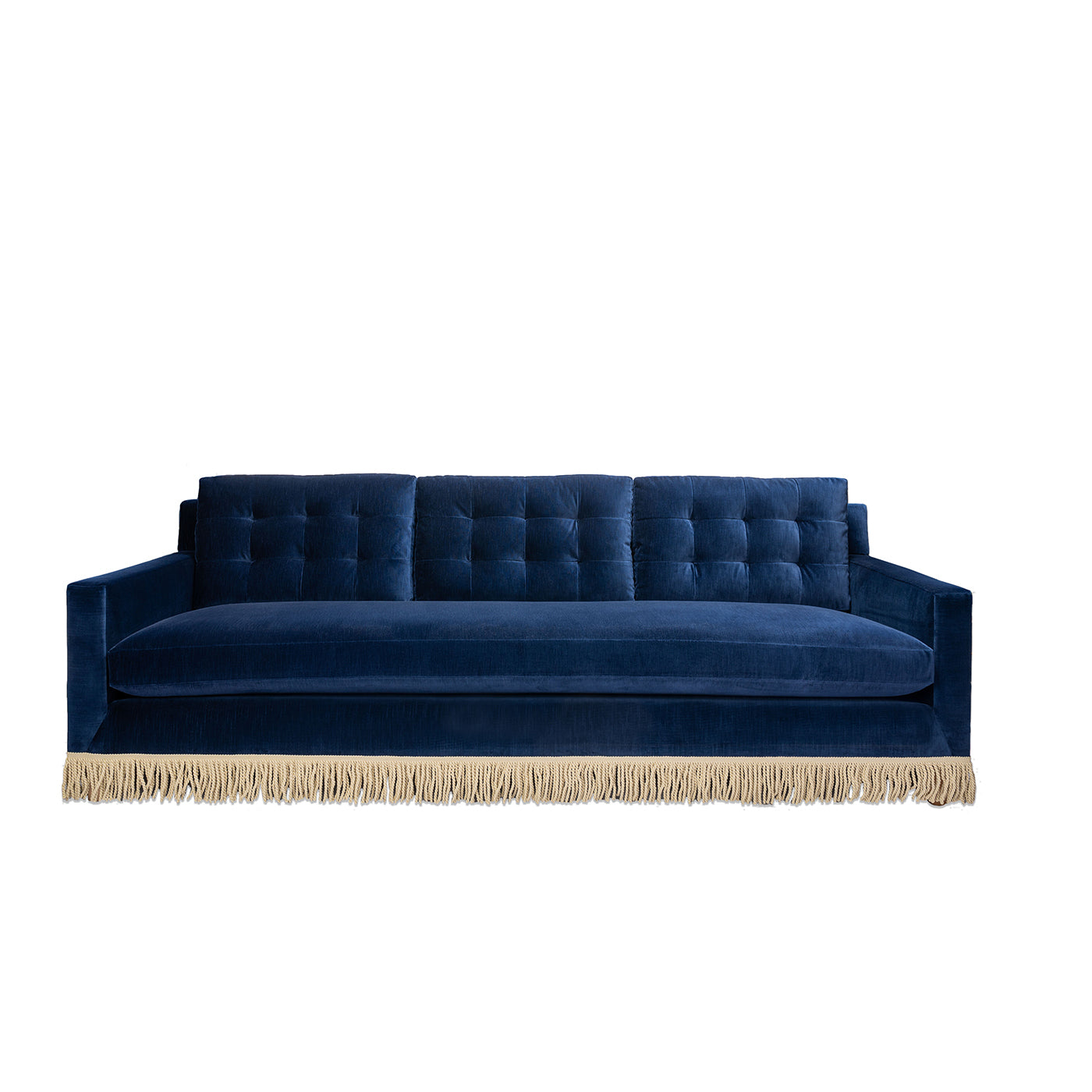Sorry Minimalists, but Fringed Sofas Are the Next ‘Old-Fashioned’ Style to Have a Design Renaissance
Interior designers are once again making the case that what’s old can look and feel irresistibly new

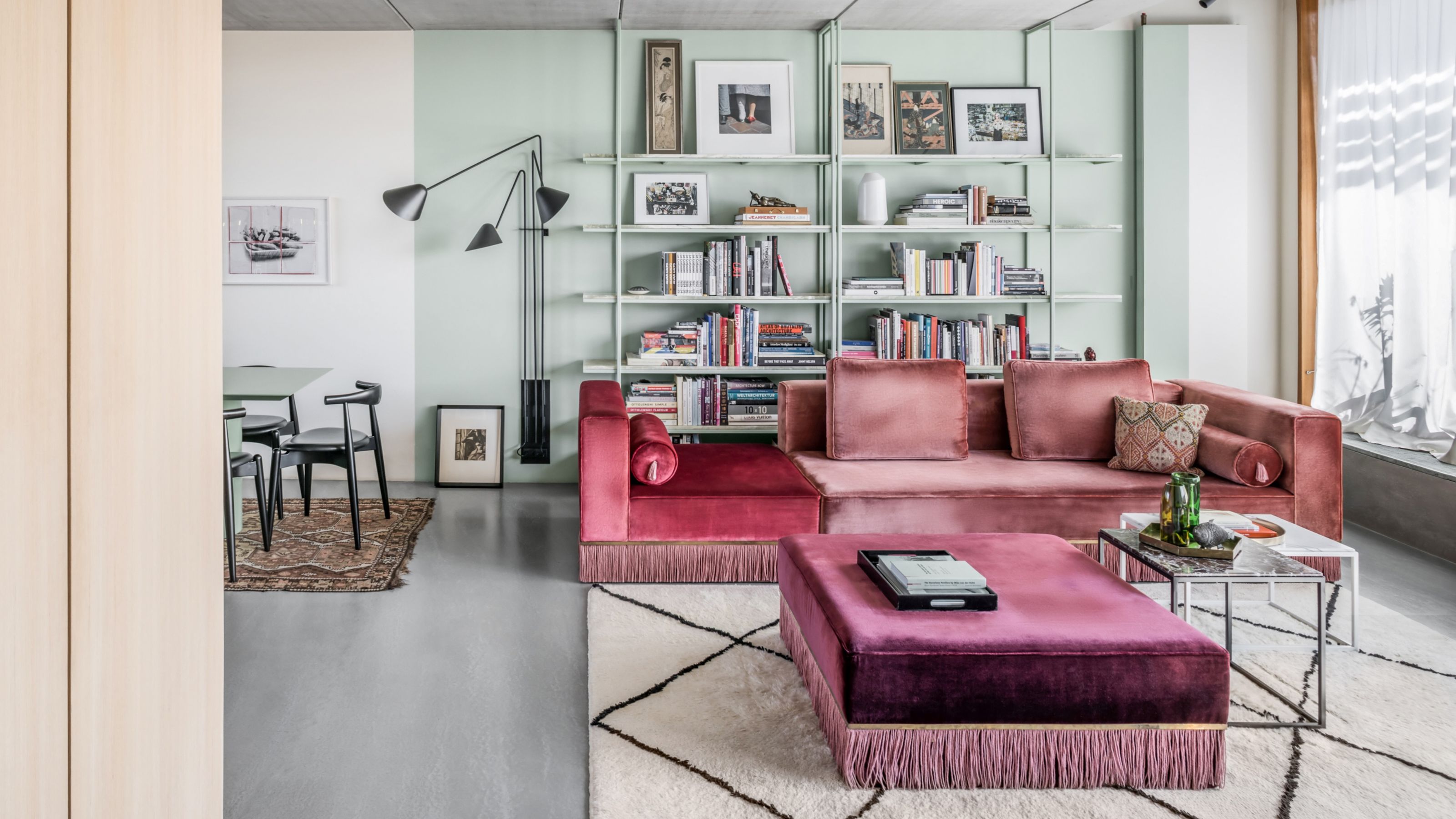
Passementerie, or the art of upholstery trimmings, has long been associated with a sort of 'OTT' style of traditional decorating — but not so in 2025. Interior designers are increasingly making the case that the look deserves a modern revival, and they’ve convinced us that the time is right to invest in a fringed sofa (again).
The wider fringe furniture trend — which has seen armchairs, footstools, and even occasional tables given this decorative detail — works especially well on sofas as the treatment really has the space to become a tactile focal point. “There’s something incredibly rich about a fringed sofa,” agrees sensory designer Lauren Davies from HEKA. “Visually and texturally, it’s all about zooming into the detail.”
Today’s designers say the fringed sofa trend is chic, rather than chintzy — here’s how to make it work in a more contemporary space.
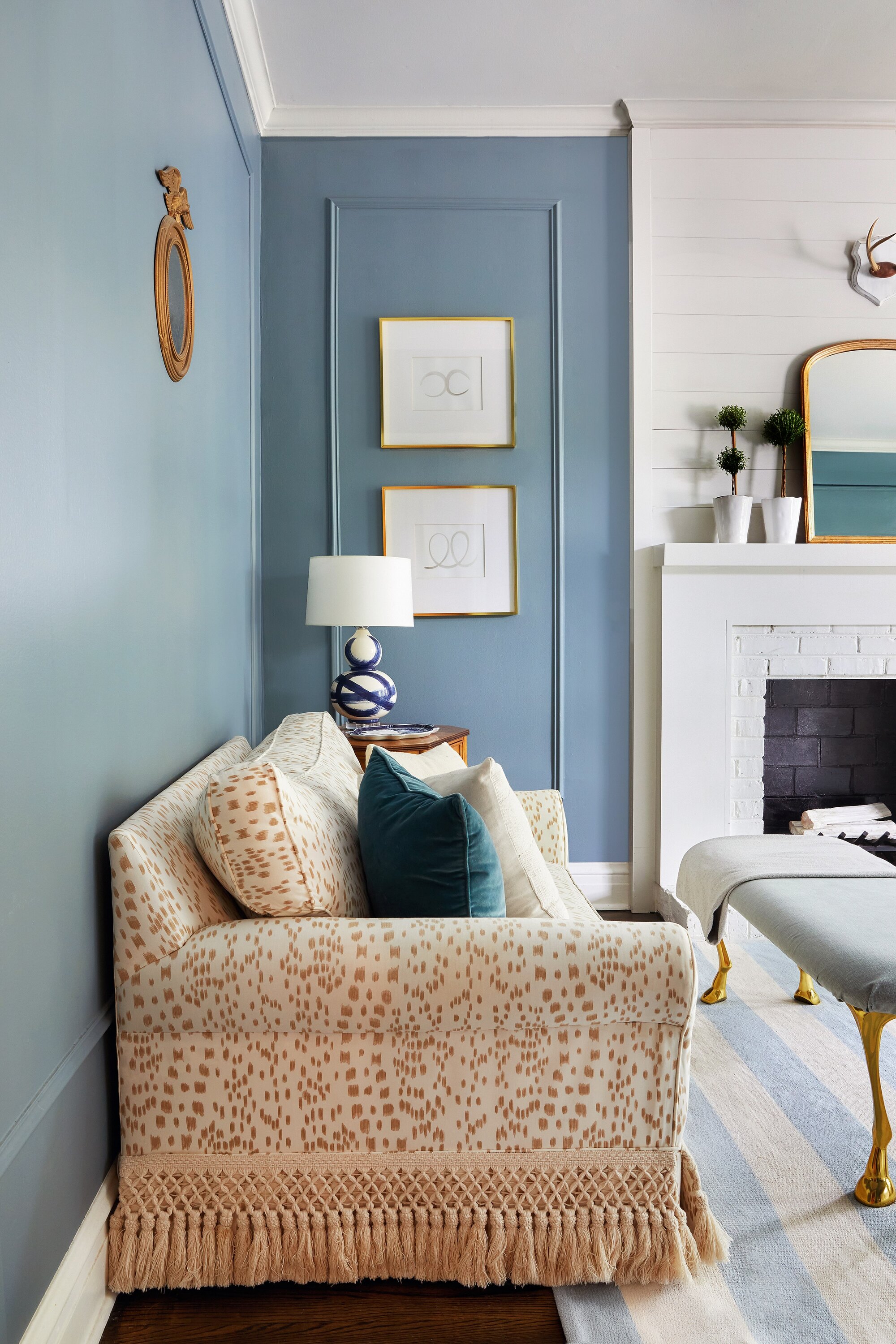
Fringing was, at first, a way to make furniture look more polished. "It began as a practical way to finish the raw edges of upholstery before modern hemming techniques existed," explains Marisa Gutmacher from Samuel & Sons, the specialist passementerie and needlecraft house interior designers flock to. After the look first began in France, more elaborate decorative trimmings soon came to signify wealth.
"By the 17th and 18th centuries, lavish trimmings adorned seating in salons and drawing rooms, each application reflecting curation and social status," Marisa adds. "Historic interiors used trimmings for pure grandeur." In the 1920s, the look shifted toward more stylized glamour that continued into the Golden Age of Hollywood — think cocktail bars, smoking lounges, and movie theaters.
Throughout the mid-century modern design era, Scandinavian designers used trims to add texture to furniture in a restrained way. Today, fringed sofas have developed into something more expressive. “Fringes, tassels, welts, and gimps have been around for centuries, but they’ve evolved into something more beautiful than ever,” says New York-based designer Charlotte Lucas. “I now think of them as jewelry for upholstery.”
Why Are Fringed Sofas Trending?
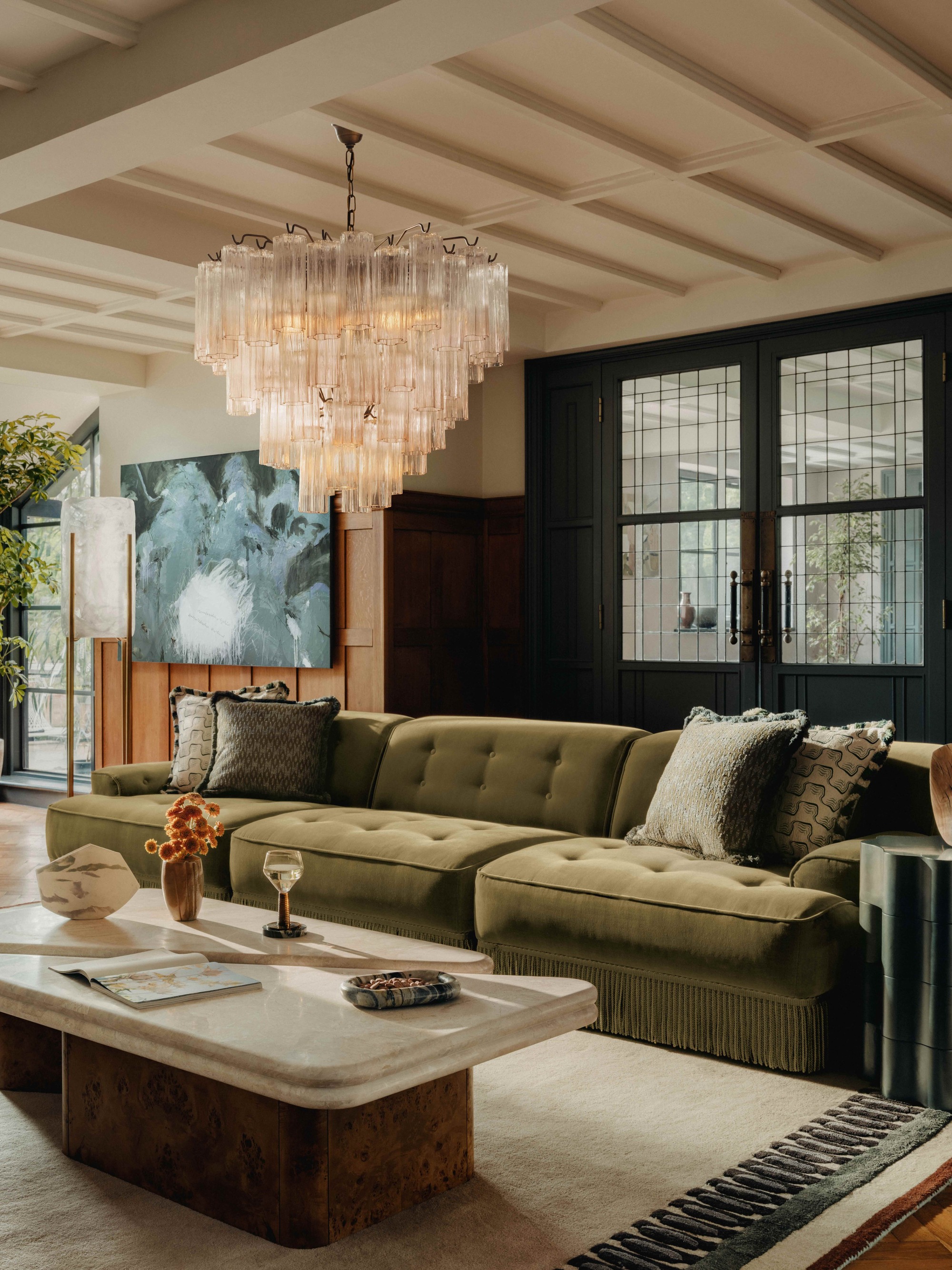
When Soho Home launched its Elowen sofa, new for autumn 2025, the brand once again tapped into a desire for our spaces to have a feeling of life, rhythm, and movement. “Done thoughtfully, fringe adds this texture and touch of luxury without feeling fussy,” explains Soho Home's interior designer Rosie Welburn. “A fringed sofa can be a smart, modern statement,” she adds.
The Livingetc newsletters are your inside source for what’s shaping interiors now - and what’s next. Discover trend forecasts, smart style ideas, and curated shopping inspiration that brings design to life. Subscribe today and stay ahead of the curve.
“They add an unexpected layer of texture, movement, and surprise,” agrees Ester Bruzkus from Bruzkus Greenberg. The look can take on a playful vibe, perfect for today’s layered approach to decoration and design. “Fringing is a shamelessly decorative element, but when you use it in a contemporary context, it becomes something daring, sophisticated, and completely new,” she adds.
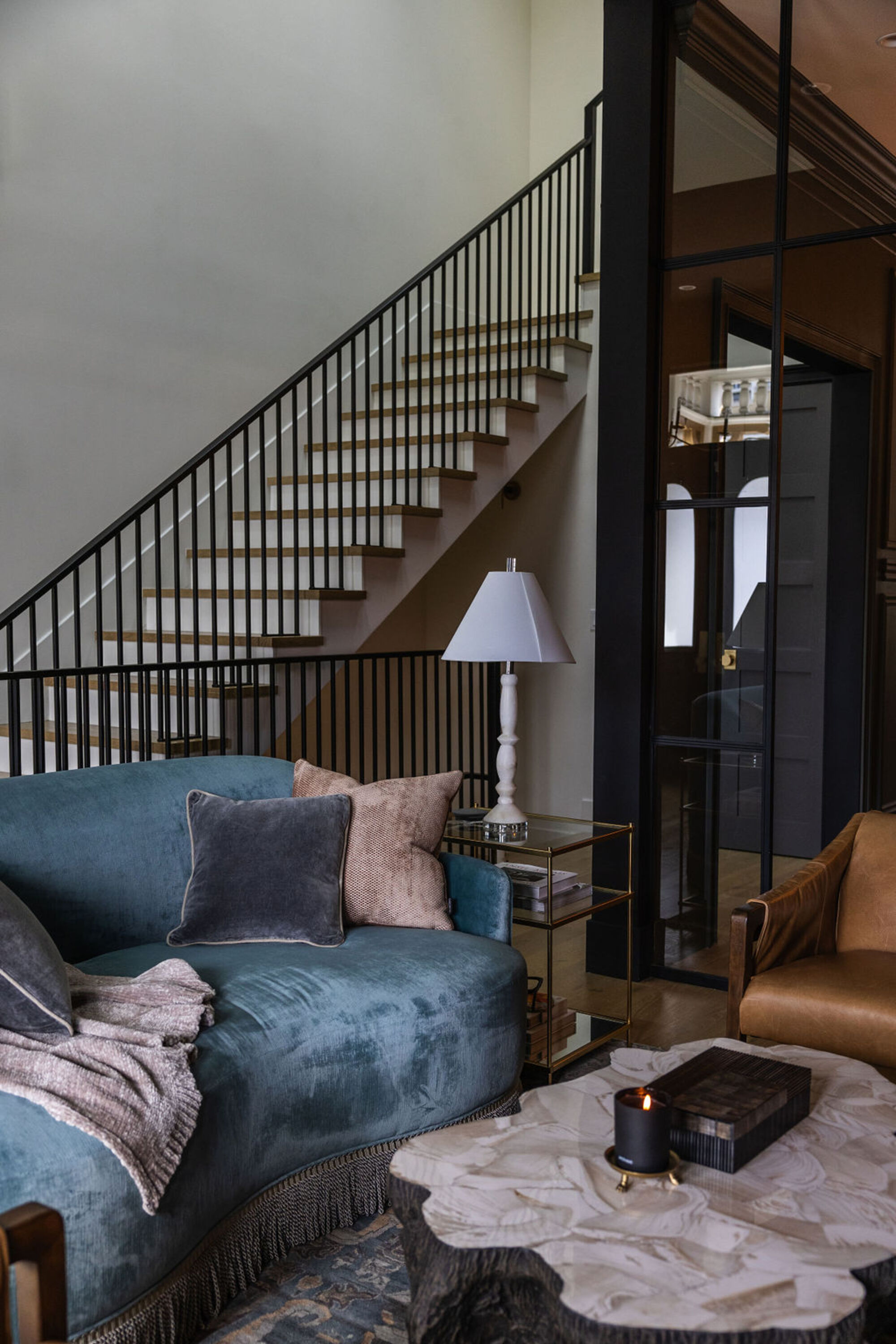
Fringed sofas can also feel effortlessly classic, heightening their appeal. “Fringing can make a piece feel truly timeless,” says Erika Morris from Nested Designs. “I love blending old and new, and we’ve used fringing to ground a contemporary sofa silhouette in the context of a Victorian property. There’s something inherently rich about the detailing, making a space feel super sophisticated.”
“Fringing always makes a piece feel more custom and high-end,” agrees Chicago-based designer Kaylan Kane. “When we started seeing a resurgence of fringing and tassels, it was no surprise. Our clients are shifting towards more maximum design and pattern layering, and trims make all these details pop.”
How Are Designers Making Fringed Sofas Cool in 2025?
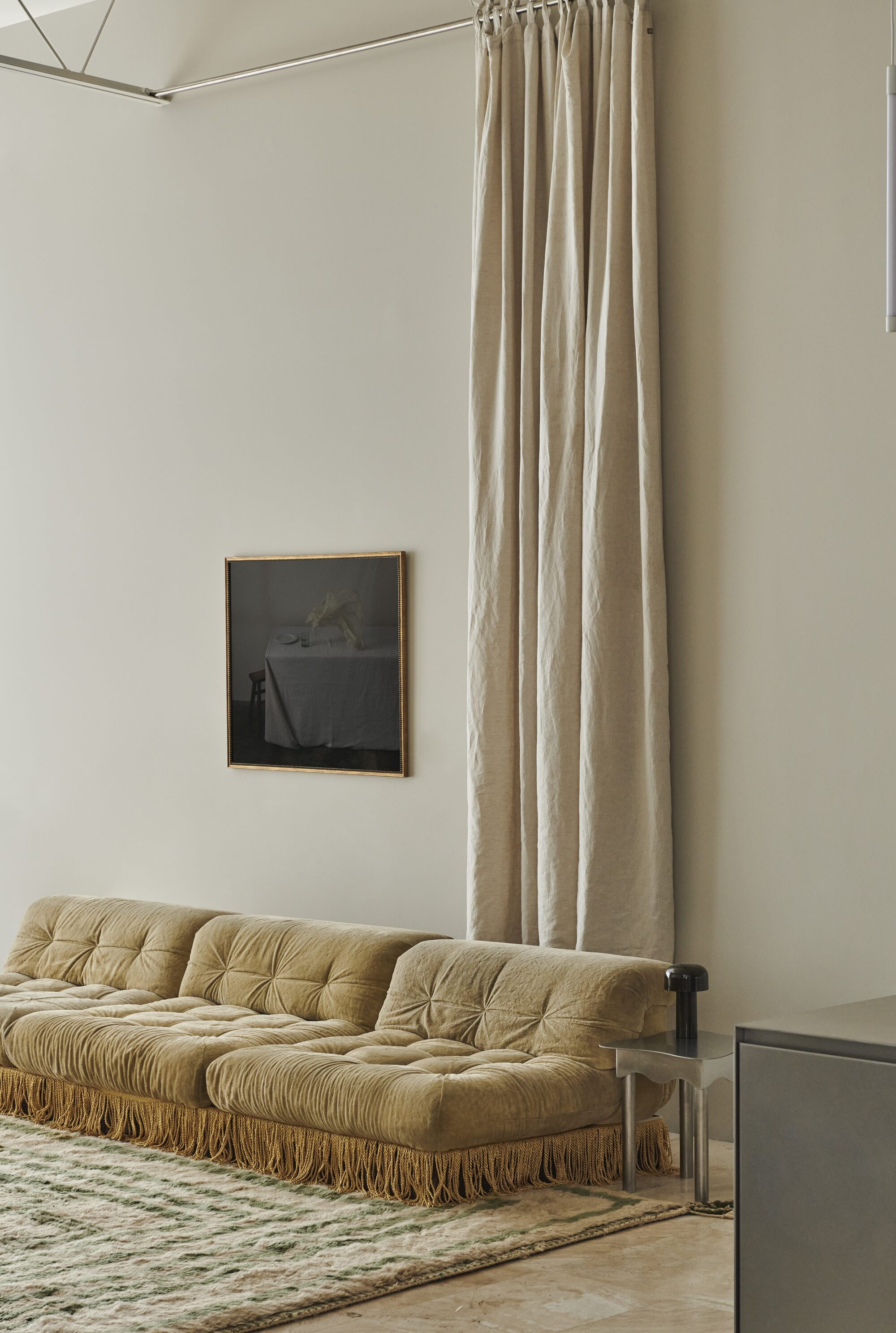
Interior designers are using fringing for an element of decorative surprise. “Fringing is adding dimension and a touch of the unexpected to contemporary projects,” says Marisa Gutmacher from Samuel & Sons. “It taps into a desire for tactility, luxury, and craftsmanship, and designers are using fringed sofas to give spaces a sculptural presence.”
“The secret to making a fringed sofa look cool is all in the juxtaposition with something sharp,” adds Ester Bruzkus. “One should pair it with minimalist forms, raw materials, and clean architectural lines,” she instructs. “That way, the fringe becomes a confident, decorative statement rather than a nostalgic throwback.”
Fringed Sofas to Buy Now
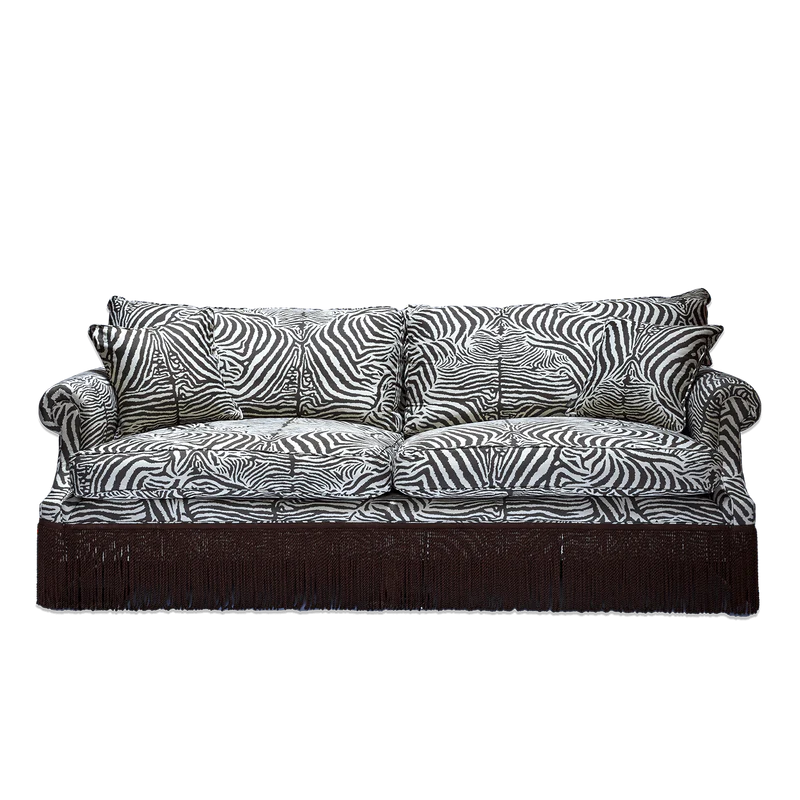
Take a walk on the wild side with this zebra-print statement sofa.
With interior designers increasingly using fringed sofas even in the most contemporary of spaces, it’s clear that passementerie is back — and anything but passé.
If you’re considering updating your upholstery without replacing it, adding a DIY trim to your sofa is a clever way to bring an existing piece up to date.

James Cunningham is a freelance journalist based in London. He has written extensively on design and decorating for some of the UK’s leading publications, including House Beautiful, ELLE Decoration, and Country Living, and previously served as Homes and Gardens Editor at Good Housekeeping. When he’s not at his desk, James can be found globetrotting in search of good food, better wine, and the best architecture.
